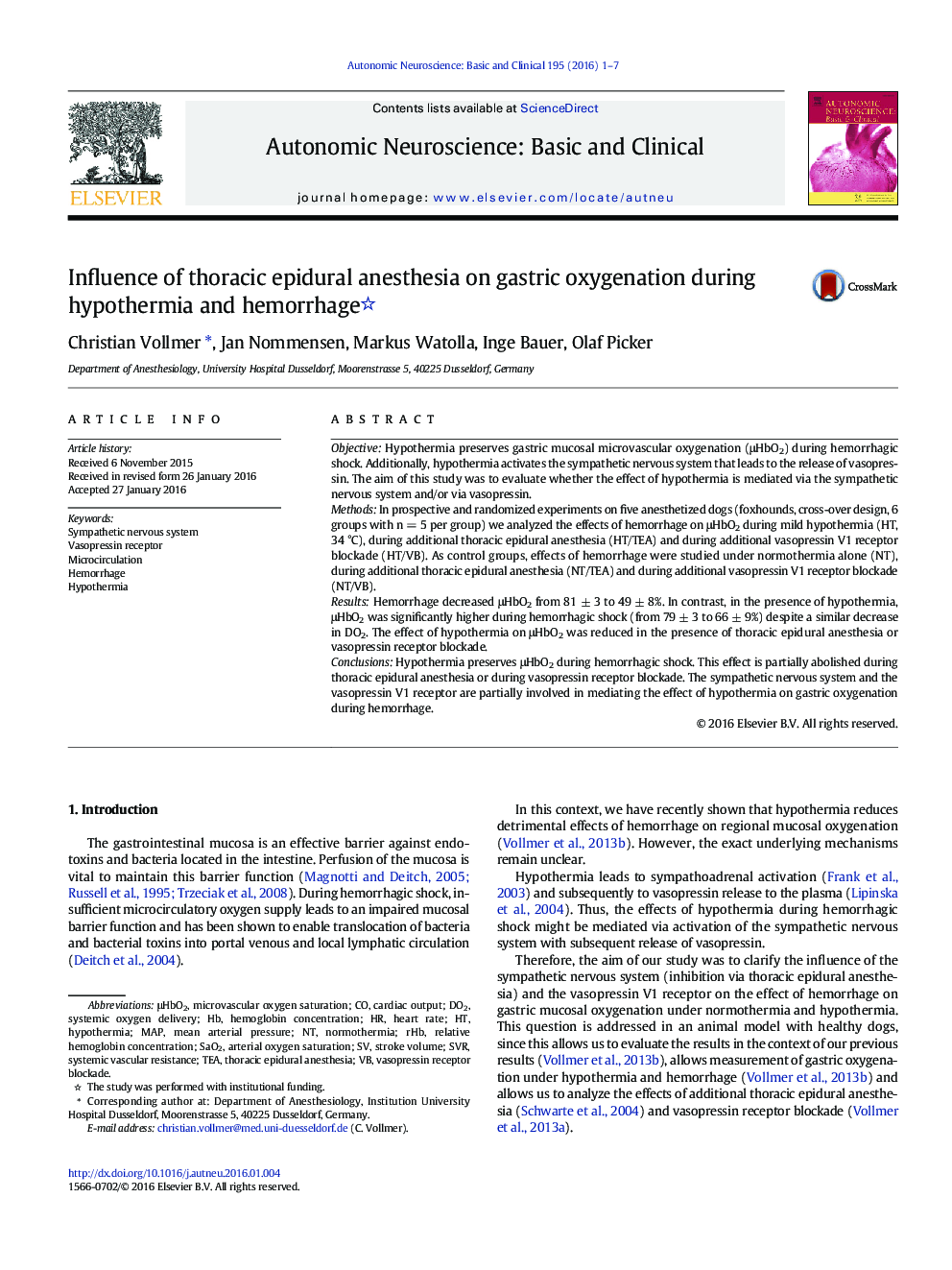| کد مقاله | کد نشریه | سال انتشار | مقاله انگلیسی | نسخه تمام متن |
|---|---|---|---|---|
| 3034468 | 1579520 | 2016 | 7 صفحه PDF | دانلود رایگان |
• Hypothermia attenuates gastric microvascular oxygenation during hemorrhage.
• Thoracic epidural anesthesia and vasopressin receptor blockade abolish the effect.
• This effect is independent of changes in systemic oxygen delivery.
• The sympathetic nervous system and the vasopressin V1 receptor mediate the effect.
ObjectiveHypothermia preserves gastric mucosal microvascular oxygenation (μHbO2) during hemorrhagic shock. Additionally, hypothermia activates the sympathetic nervous system that leads to the release of vasopressin. The aim of this study was to evaluate whether the effect of hypothermia is mediated via the sympathetic nervous system and/or via vasopressin.MethodsIn prospective and randomized experiments on five anesthetized dogs (foxhounds, cross-over design, 6 groups with n = 5 per group) we analyzed the effects of hemorrhage on μHbO2 during mild hypothermia (HT, 34 °C), during additional thoracic epidural anesthesia (HT/TEA) and during additional vasopressin V1 receptor blockade (HT/VB). As control groups, effects of hemorrhage were studied under normothermia alone (NT), during additional thoracic epidural anesthesia (NT/TEA) and during additional vasopressin V1 receptor blockade (NT/VB).ResultsHemorrhage decreased μHbO2 from 81 ± 3 to 49 ± 8%. In contrast, in the presence of hypothermia, μHbO2 was significantly higher during hemorrhagic shock (from 79 ± 3 to 66 ± 9%) despite a similar decrease in DO2. The effect of hypothermia on μHbO2 was reduced in the presence of thoracic epidural anesthesia or vasopressin receptor blockade.ConclusionsHypothermia preserves μHbO2 during hemorrhagic shock. This effect is partially abolished during thoracic epidural anesthesia or during vasopressin receptor blockade. The sympathetic nervous system and the vasopressin V1 receptor are partially involved in mediating the effect of hypothermia on gastric oxygenation during hemorrhage.
Journal: Autonomic Neuroscience - Volume 195, February 2016, Pages 1–7
